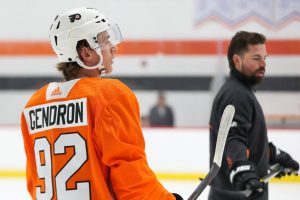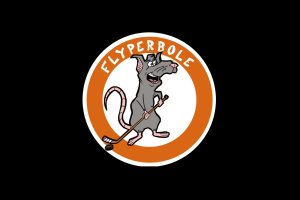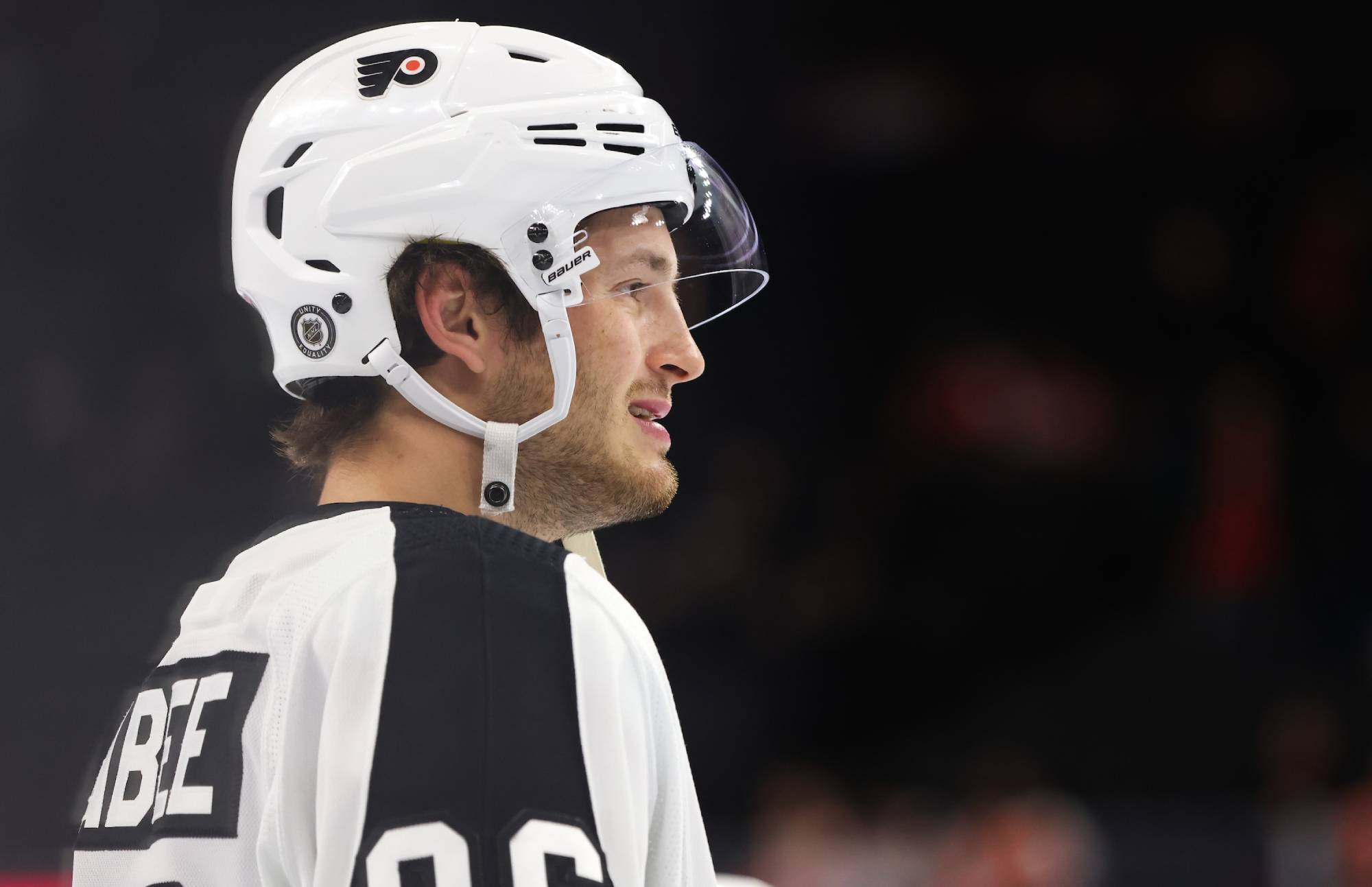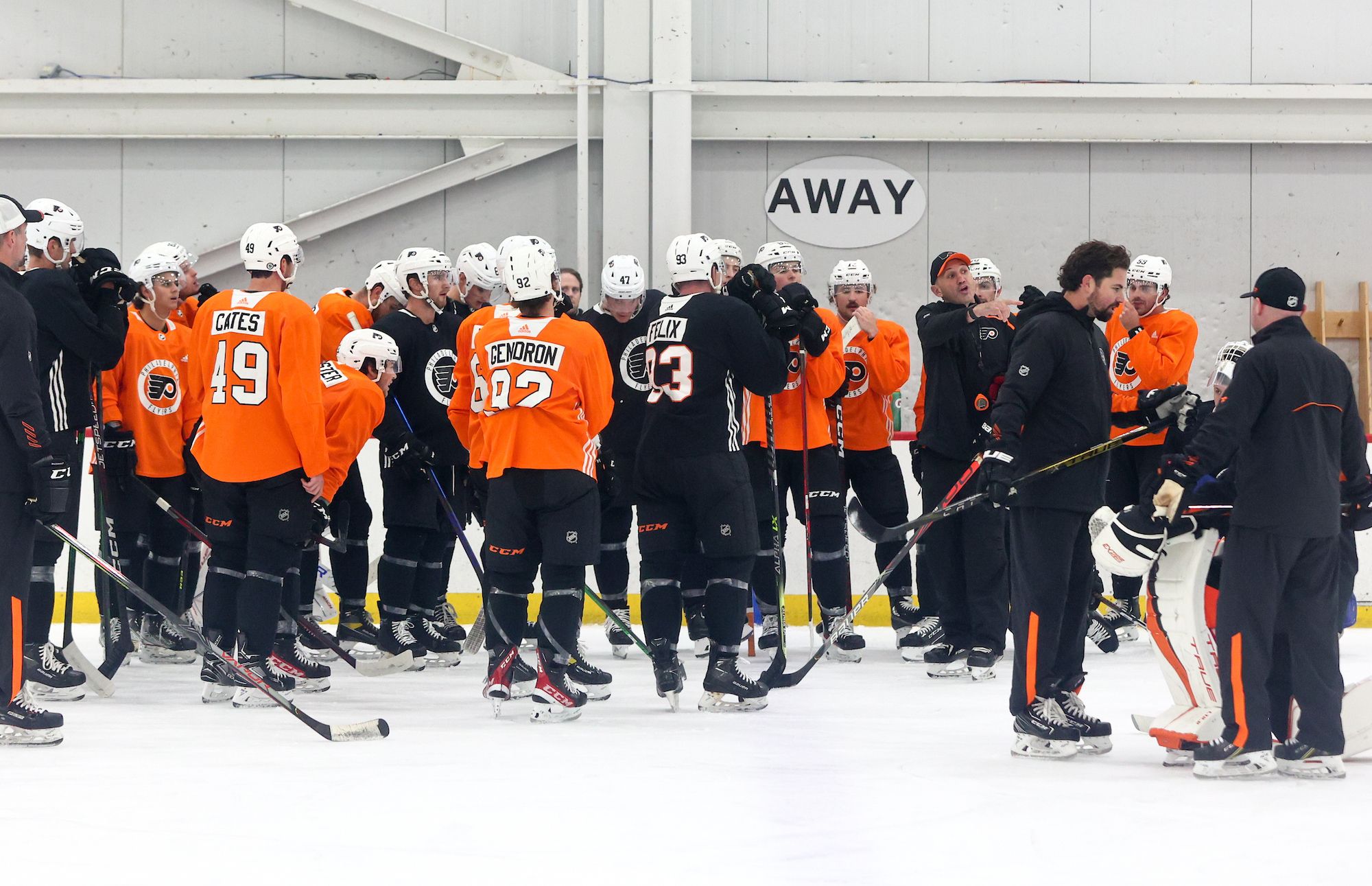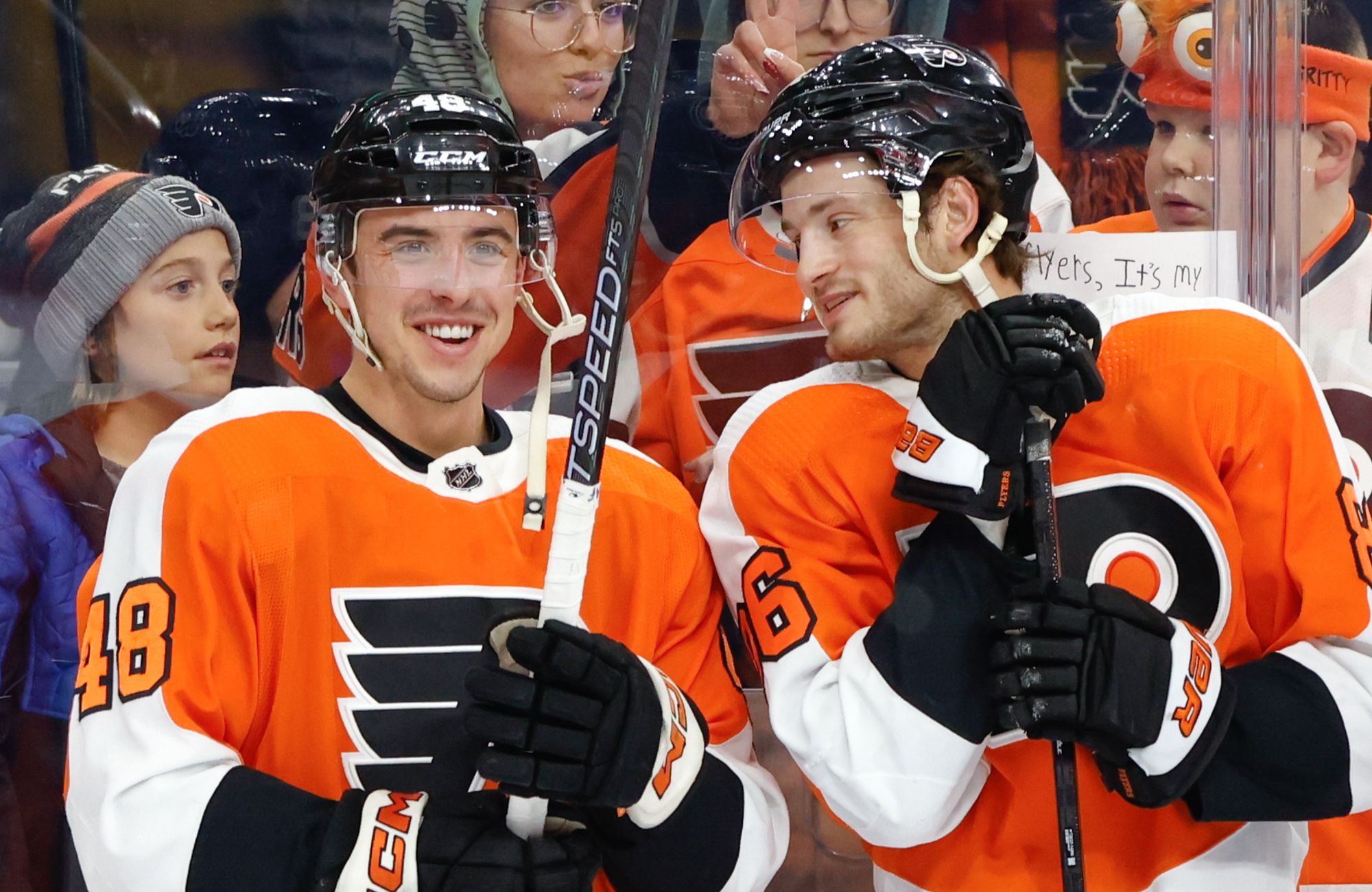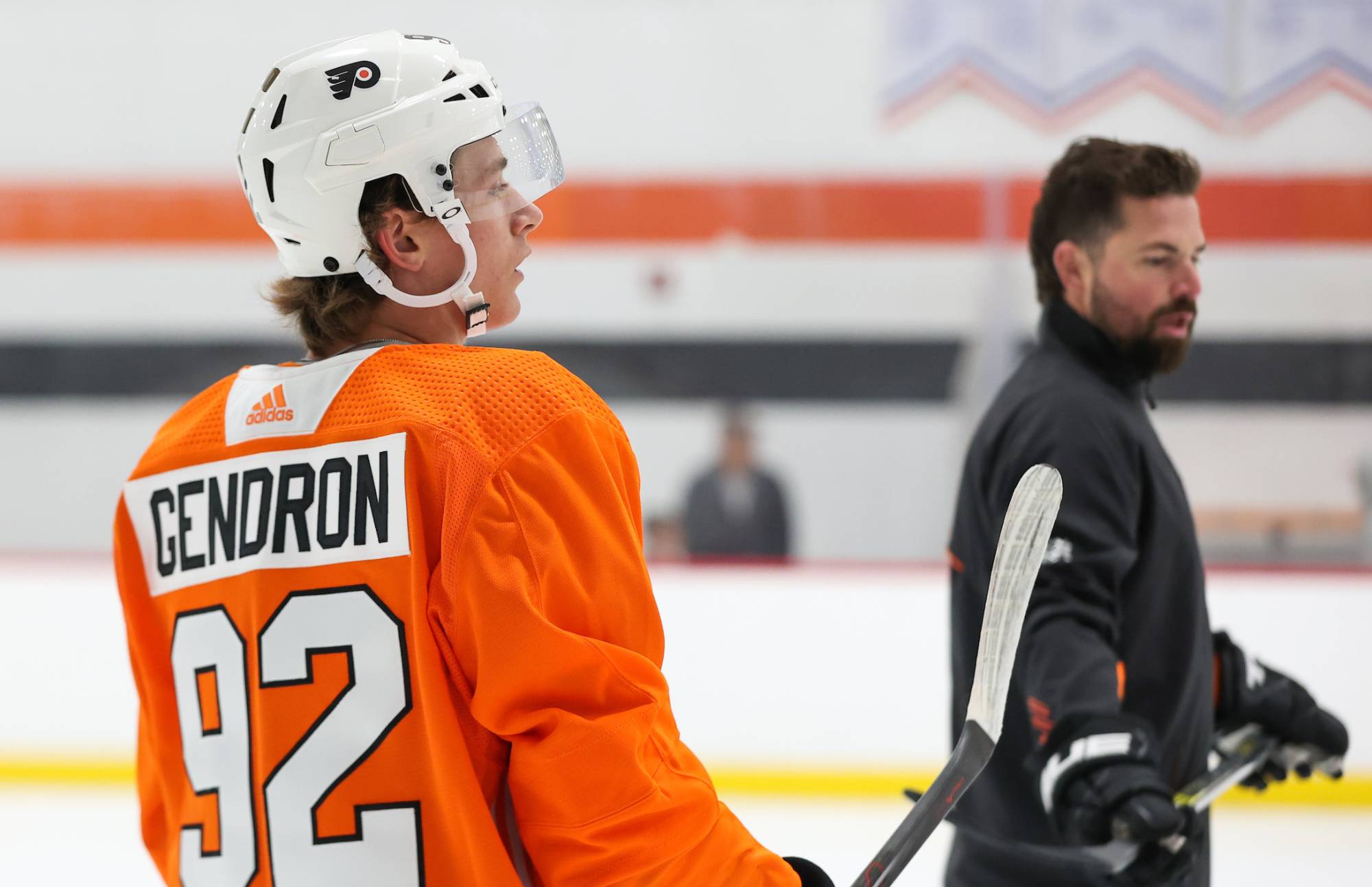Morning Observations is a feature where we break down the previous night’s game with an analytical eye.
#1: One good period isn’t enough
It’s fair to come out of this game frustrated with a few select players. It’s fair to have some issues with a few of the calls on the ice. It’s even fair to yell about the Flyers’ overall goaltending so far this year. All are viable contributing factors as to why Philadelphia lost last night to the Arizona Coyotes. But in the end, the Flyers played just a 20-minute game, only delivering complete hockey in the middle stanza. That’s not a formula to win much in the NHL.
To be sure, Philadelphia dominated the second period. They blasted 26 unblocked shot attempts at Arizona goalie Louis Domingue, while allowing just four to the Coyotes. That’s not carrying a period — that’s utter obliteration of the opposition. As a result, it’s not surprising that the team won the overall key even strength statistical categories, such as score-adjusted Corsi (52.24%) and xG (54.63%). But the other two periods were not as flattering to the Flyers. Another poor start resulted in a 2-0 hole as Philadelphia failed both in shot and goal prevention. Then, the third period was a comedy of errors, as Arizona scored three goals due to big Flyers’ mistakes.
Sure, if Mason stops the weak goal #5, or goal #3 gets blown dead by the referee when Jakob Chychrun dropped his gloves rather than after Martin Hanzal had already scored, or if Andrew MacDonald merely has a run-of-the-mill bad game, the Flyers probably win last night. But that’s more a commentary on the quality of their opponent. Philadelphia simply needs to put forth 60-minute efforts if they really want to get rolling this year.
#2: Still, bottom of the roster was especially poor
Even though this loss was a team effort, that doesn’t mean that certain players aren’t more culpable than others. And a quick glance at the on-ice attempt differentials chart shows that most of the Flyers’ top-of-the-lineup guys graded out pretty well at even strength. Simmonds and Couturier finished with score-adjusted Corsi For percentages over 65%. Gudas, Streit, Manning and Provorov all were over 57%. The captain posted a solid 55.59 percent. When these key players were on the ice, Philadelphia was generally creating shots and chances and giving the team a chance to win.
The bottom of the lineup, on the other hand, was a mess. Former Untouchables Pierre-Edouard Bellemare and Chris VandeVelde both finished below 40% on the chart, while the pairing of Andrew MacDonald and Shayne Gostisbehere closed out the night at 33.14% and 36.73% respectively. The bad news is that these players are not performing well (though I’m tempted to temporarily change Gostisbehere’s name to “Andrew MacDonald’s partner” because I’m not sure anyone could succeed beside him right now), but the good news is that the big issues among the skaters are isolated to specific sections of the lineup. In theory, that should make them easier to fix. Only time will tell if that proves to be the case in reality, though.
NHL.com Report & Highlights | Corsica.Hockey Game Recap Page | HockeyStats.ca Recap | NaturalStatTrick Recap | HockeyViz.com | BSH Recap | Meltzer’s Musings
#3: Yet another slow start
One of the prevailing narratives of the early season for the Flyers has been their performance in first periods. The results have been horrific — they have a 43.06% Corsi in first periods so far this year, and have been outscored overall by a margin of 8-1. It seems like in every game there’s a different reason for the poor early showing, so it’s not as if the root cause is consistent. Some nights, it’s passing. On other occasions, it’s too many early penalties. Still other times it’s an impotent forecheck.
Hakstol was blunt after the game in his assessment of the team’s first period, as he said, “We didn’t play well to start this game; we didn’t have the intensity to begin the game at the drop of the puck. It wasn’t there. We have to address that, we have to get better.” To Hakstol’s credit as well, he shouldered the blame for the poor overall outcome, stating, “We have to look at ourselves and that always starts when we wake up in the morning and look in the mirror. That starts with me and that goes through our entire group.” To me, this issue is mostly on the players. The system clearly works — the Flyers are showing that in other periods. For some reason, it just hasn’t been there early in games far too often this year. That feels like an execution problem, not coaching.
#4: Andrew MacDonald is a real problem
Andrew MacDonald has long been the target of critics throughout the fanbase, especially those who favor statistical analysis in their evaluation of players. After all, MacDonald’s advanced metrics at 5v5 are truly horrid, among the league’s worst. But he’s also had his supporters as well, who credit him for being a decent puck-mover and believe he is unfairly criticized because he is undeniably overpaid. However, these last few weeks have whittled down that pool of MacDonald defenders to almost nothing.
There’s a strong case to be made that he was the worst player on the ice last night, which is especially amazing considering he scored a third period goal. But in terms of defense, he struggled on every shift. There was the pass right on the tape to an Arizona forward in the first period. Then, we saw him lose the forward on his side of the ice on the Coyotes’ first goal. And don’t forget his poor read in the neutral zone leading to Arizona’s third goal. To be honest, there were even more plays than these three that succeeded in forcing the Flyers to spend more time in their own end of the ice and less time on the attack, but those simply didn’t warrant the making of a video or gif. MacDonald’s 33.14% score-adjusted Corsi was well earned.
So what happens now? I asked Hakstol after the game how he evaluated a game where MacDonald scored but also was involved in so many coverage issues. The head coach did not single out the defenseman in his response but he also did not defend him, stating, “I think that’s a little bit typical of our game. We did some good things sporadically but you don’t win games by doing a few good things sporadically throughout the game. You have to be good from start to finish, individually, collectively and that’s how you win games.” There’s little upside for a coach with Hakstol’s personality to publicly rip a struggling player, but I find it hard to believe MacDonald will be in the lineup on Saturday against the Penguins over Nick Schultz. Truthfully, he’d probably be doing the 30-year old veteran a service by sitting him, because a matchup with Sidney Crosby is the last thing he needs right now.
#5: Mason with his worst performance of the year
So far this season, I’ve defended the play of Steve Mason. Sure, his overall save percentage wasn’t particularly impressive, but he was making big stops and regularly outperforming his Expected Goals allowed metrics. However, last night was Mason’s first real clunker. The fifth goal is the one that looks the worst, as he moved into the “reverse-VH” position just as Ryan White chose to roof the puck, a poor decision. As for the rest of the goals, none were “easy,” and I’d absolve him on Richardson’s goal entirely. But on many of the others (especially Ekman-Larsson’s tally), Mason could have played the situation better. They weren’t awful goals, but the one constant with bad goalies is that observers are always making excuses for why “that one was a tough save, can’t blame him!” The fact is, there are lots of tough shots and situations in a game — the best netminders simply make them and we then forget about the opportunities. Last night, Mason just wasn’t up to that standard.
#6: Couturier does not need Voracek and Konecny to drive play
When the line combinations were announced this morning and both Travis Konecny and Jakub Voracek were moved up to play with Claude Giroux, there was some concern that decision would dramatically hinder the effectiveness of second line center Sean Couturier. After all, his line was the team’s most dangerous offensively over the first seven games, and receiving Simmonds and Matt Read as wingers was a legitimate downgrade for him.
Well, Couturier may not have scored last night, but pushing play in the right direction was no issue at all for him. He finished with a stellar 66.07% score-adjusted Corsi, and was active on the cycle all game. It shouldn’t be a surprise — Couturier was a fantastic play-driver last year regardless of linemates. He can carry a line even without electric talents beside him, and this game was just a reminder of that fact.
#7: New look third line fairly effective
Dale Weise returned to the lineup last night following his three-game suspension, and he was placed with new linemates to celebrate his return — Nick Cousins and Brayden Schenn. Both players had something to prove, as Cousins was receiving his first start at his natural center position and Schenn had just been dropped to line three with the task of finding his game. The trio started a bit slow, with Schenn in particular struggling in the neutral zone. But by the second period they were rolling, and were even able to light the lamp due to strong puck retrieval from Weise eventually resulting in a rebound goal for Cousins. The line ended up basically breaking even from a Corsi standpoint, but the goal should keep them together for at least another game.
#8: Giroux snakebitten
So far this season, Claude Giroux has nine points in eight games, a solid statistical start for the captain. However, he’s yet to score a goal, which of course has the anti-Giroux contingent up in arms. Giroux does appear to be pressing a bit, as he blasted a couple opportunities on the power play way over the net, usually a tell-tale sign of the captain trying too hard and not simply trusting his skillset.
But in truth, Giroux is just snakebit right now. He’s had multiple high-quality scoring chances flat out be robbed by the opposing netminder, such as his opportunity in the slot with nine minutes remaining last night. The numbers back it up — he finished with a 0.63 individual Expected Goal total against the Coyotes, third among Flyers’ players, and his full-season ixG total is just under two goals. Giroux’s process has been good enough from a goalscoring standpoint, he just hasn’t gotten the breaks as of yet. But they’ll come.
#9: Top unit inconsistent but on the whole productive
The Flyers’ top power play unit can certainly be frustrating. For all their offensive firepower, they go through stretches where they can barely seem able to set up in formation, due to turnovers and zone entry tactics that often seem to lack creativity. But once Philadelphia’s top unit does get set up on the attack, look out. That was how things went last night, as the Flyers’ PP alternated between ghastly inefficient to well-oiled machine from opportunity to opportunity.
The numbers ended up looking fine for the top unit on the whole, as they scored twice (once at 5v4, once at 6v4) and posted strong shot creation numbers (Giroux’s 5v4 on-ice Corsi For of 118.19 would have ranked him just outside the NHL top-10 last year). Just because PP1 didn’t dominate to the degree that they did against Buffalo doesn’t mean they had a poor performance, and they certainly weren’t a reason for the loss.
#10: Lyubimov looked more effective than Bellemare or VandeVelde
Given the opportunity to play on a new version of the fourth line, Roman Lyubimov played wing with Pierre-Edouard Bellemare and Chris VandeVelde as the third wheel of an “Untouchables” reunion night (Ryan White was in the building as well, but in Coyotes’ colors). In true Untouchables fashion, Bellemare and VandeVelde struggled to drive play, but Lyubimov had no such issues. When he was on the ice, the Flyers generated 63.64% of the overall shot attempts at 5v5 — a strong rate.
Sure, he only received 7:36 minutes of even strength ice time. But he still looks faster and stronger than VandeVelde, and he even outplayed Bellemare as well, who has yet to showcase his plus forechecking skills from last season. And with his penalty killing role progressively expanding, it’s at least possible Lyubimov could stay in the lineup over VandeVelde when all are healthy. Unlikely, but possible.



